CSPO News
-
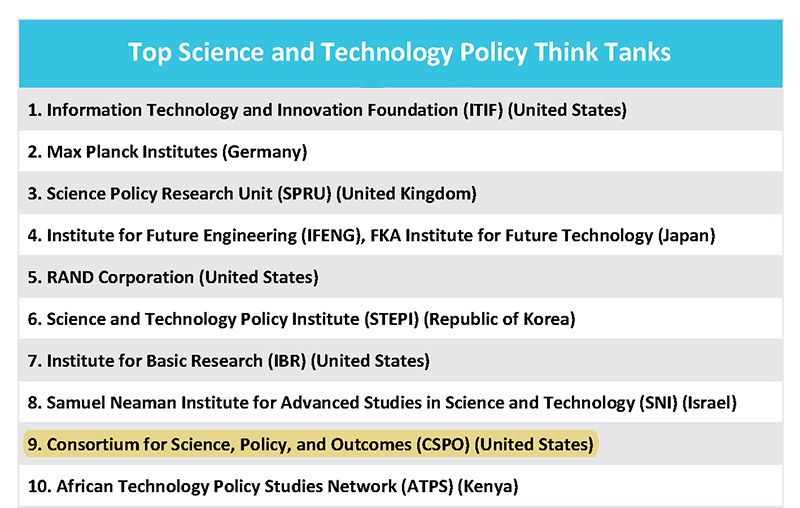
CSPO Ranked One of the World’s Top Think Tanks for Science and Tech Policy
Once again, CSPO is recognized as a global thought and practice leader in science and technology policy.
For the fifth consecutive year, the Consortium for Science, Policy & Outcomes has been ranked in the top ten of global science and technology think tanks.
-
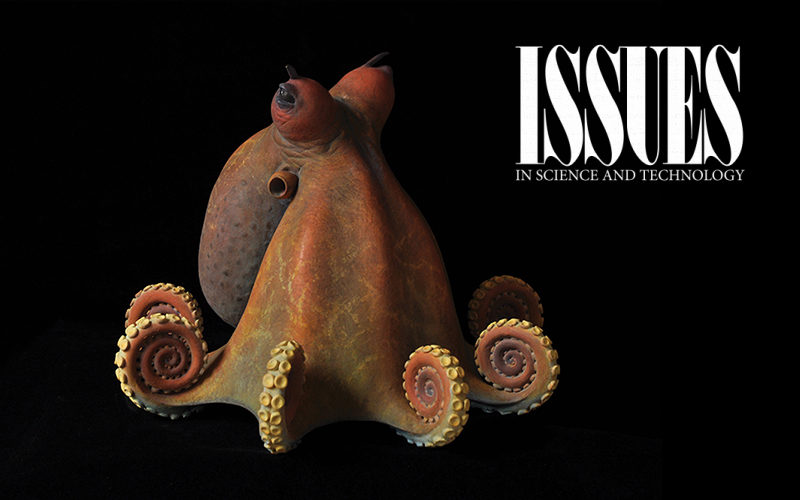
Winter 2019 Issues in Science and Technology
Higher education re-imagined, plus nuclear weapons testing, octopus farming, space mining, and much more.
A special section of essays in the Winter 2019 Issues in Science and Technology draws from five studies recently released by the National Academies of Sciences, Engineering, and Medicine, along with essays from the presidents of several innovative universities, to present an array of practical policy solutions to well-recognized weaknesses in the STEM education enterprise.
-
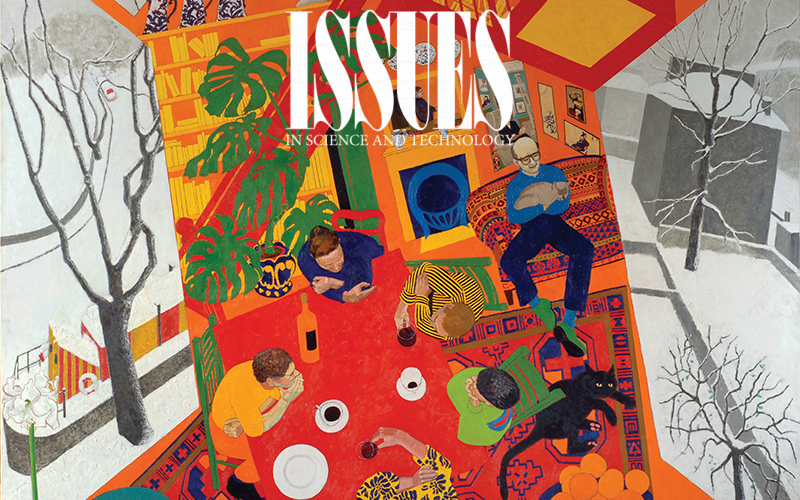
Fall 2018 Issues in Science and Technology
What effect will technological advances have on the nature of work? A special section in the new issue helps to make sense of how work is changing.
Advances in artificial intelligence, robotics, and other technologies have produced anxiety about the future of work. The picture is so uncertain that cases can be made for a future shortage of skilled workers, a shortage of high-quality jobs, or a decline in the need to work at all. A special section in the latest Issues explores the future of work.
-

Fall 2018 Update
Check out the new events, publications, and website we've been working on over the summer.
The Consortium for Science, Policy & Outcomes has had a very busy summer. Here are some of the exciting things we’ve been working on.
-
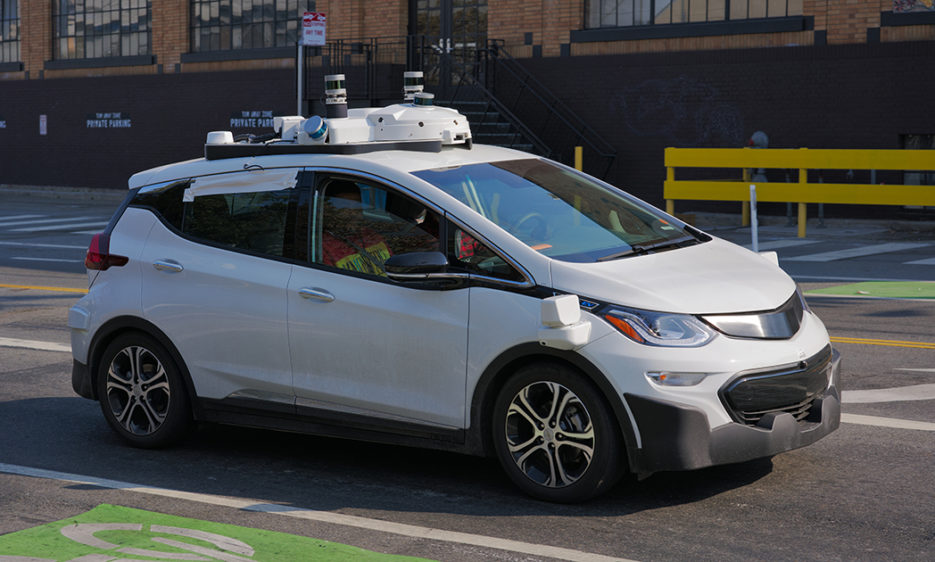
What Priorities Should Citizens Consider as Driverless Vehicles Become a Reality?
A new discussion guide brings communities together to discuss a consequential and potentially transformative emerging technology: autonomous vehicles.
The Consortium for Science, Policy & Outcomes has partnered with the Kettering Foundation to produce the first-of-its-kind deliberation guide for autonomous vehicles.
-
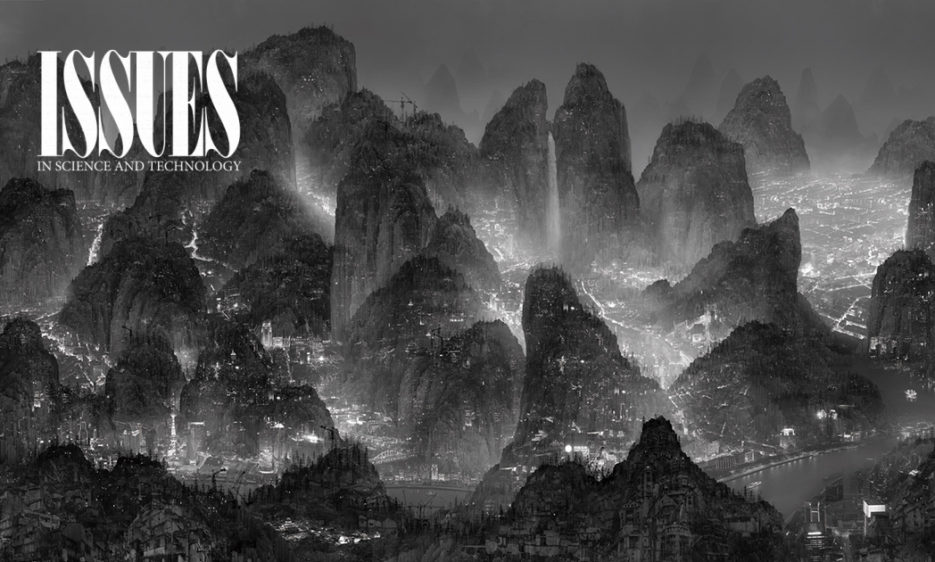
Summer 2018 Issues in Science and Technology
The new issue challenges some core assumptions that underpin policymaking in competitiveness, climate, energy, and more.
Relying uncritically on assumptions of questionable legitimacy is a poor way to make policy. This concern animates several of the essays in the Summer 2018 Issues in Science and Technology.
-

Designing Knowledge
How can organizations create and use knowledge more effectively? Clark Miller and Tischa Muñoz-Erickson provide answers in their new Rightful Place of Science book.
Knowledge is every organization’s most important asset. The newest book in the Rightful Place of Science series provides readers with the tools they need to design effective knowledge systems for informing critical business, policy, and community decisions.
-
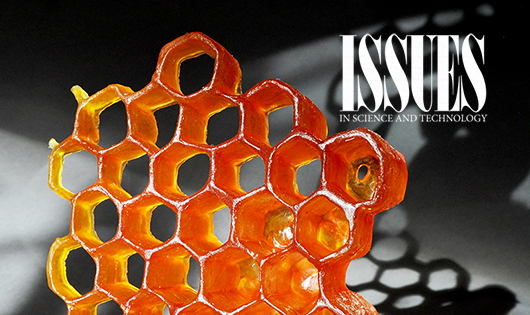
Spring 2018 Issues in Science and Technology
The latest issue features compelling policy proposals that can help society better manage momentous changes.
Can policymaking keep pace with the social, technological, and environmental upheavals we are currently experiencing? That question is central to several of the Feature essays in the Spring 2018 Issues in Science and Technology.
-
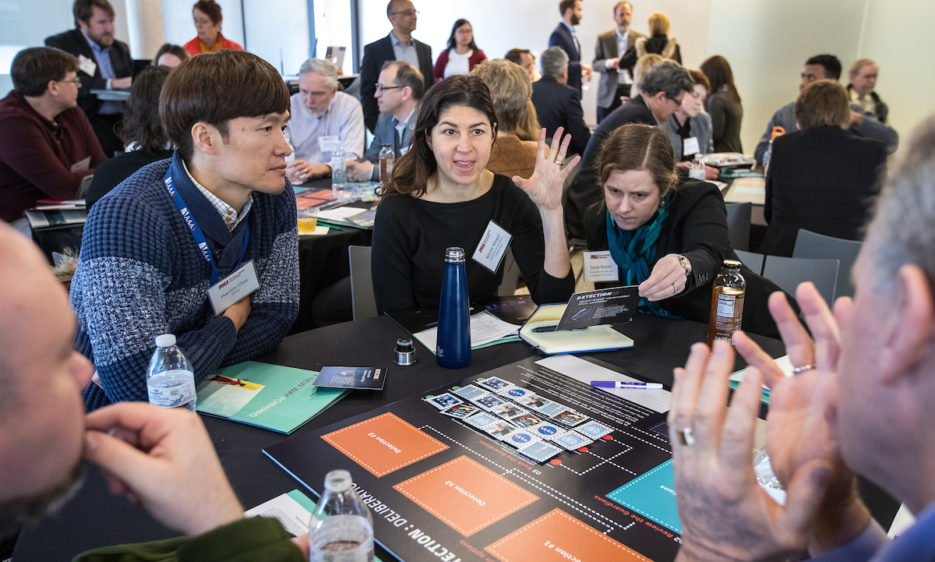
How the Public Can Inform Science and Technology Policy: The Case of Planetary Defense
How can participatory technology assessment (pTA) be used to impact science and technology policy?
CSPO and partners brought a variety of members of the Washington science policy community, media and academic organizations to participate in a mini-version of a public deliberation on asteroid detection to demonstrate the value of the pTA process of engaging citizens in informed and facilitated dialogue with experts and decision-makers.